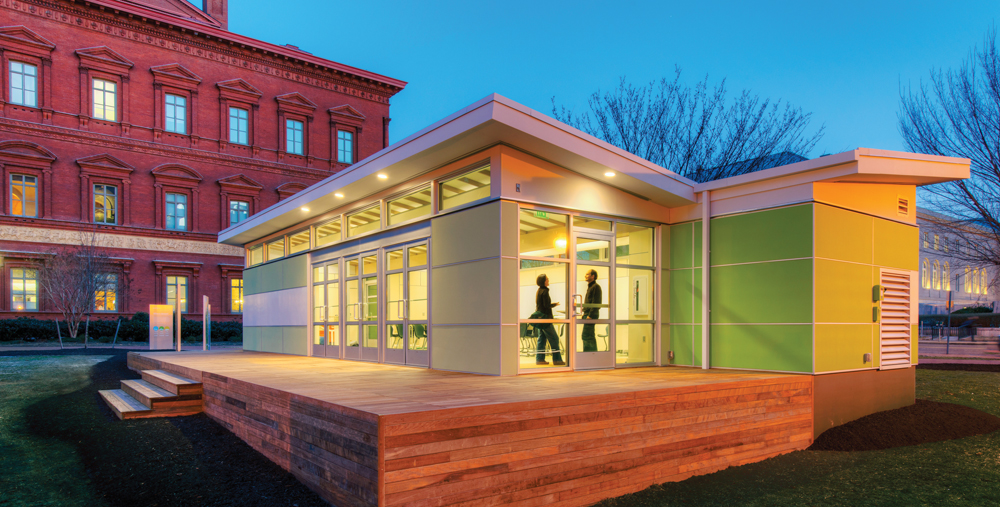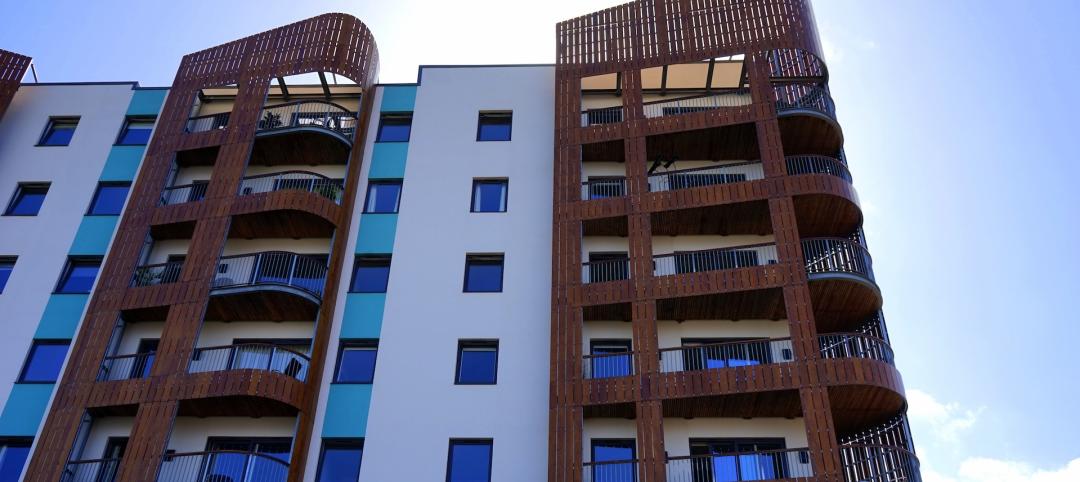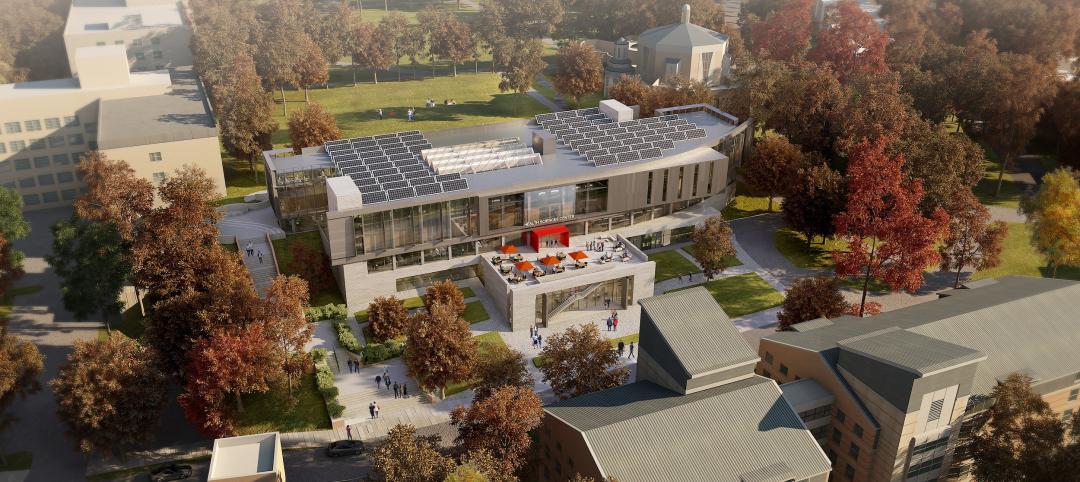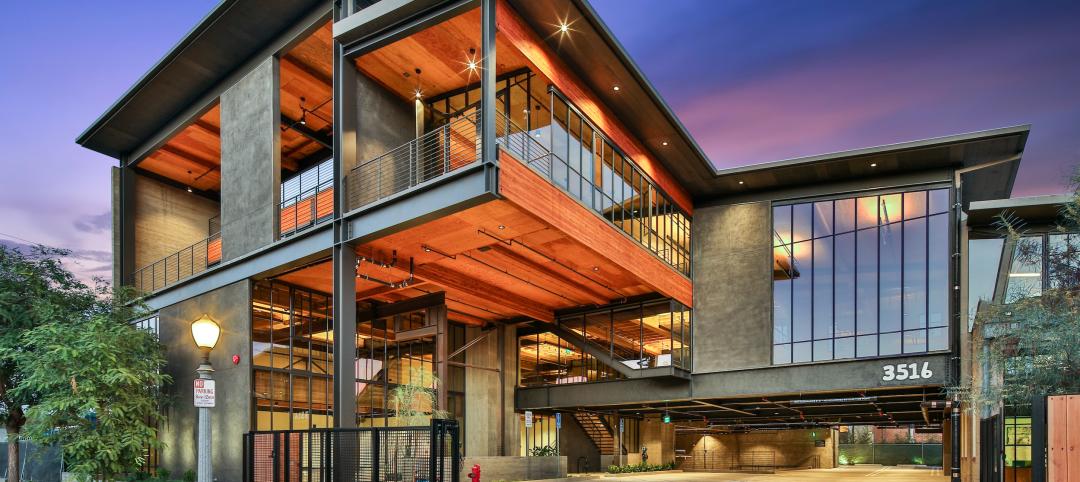While modular construction offers many benefits—notably less construction waste, project delivery efficiencies, and factory-controlled, high-quality fabrication—school districts frequently view modular as a temporary solution, and settle for units with poor design and low-quality materials. As a result, when the “temporary” modules inevitably turn into permanent structures, they fall short in terms of aesthetics and building performance.
Today, however, school districts are starting to look at higher-quality modular construction, with the understanding that the classrooms may remain on site for a number of years and must provide a proper learning environment, says Wendy Rogers, AIA, LEED AP BD+C, Design Principal with LPA Inc.
Building Teams are using incremental improvements as a strategy to create better modular solutions. For example, in a recently completed a 35,000-sf modular two-story project, LPA pushed the manufacturer to upgrade many of its standard details in order to ensure that the products met the project’s design criteria.
When executed properly, prefab construction can offer column-free interior spaces that promote flexibility and access to crawl space, open ceilings that allow for easy technology upgrades, and rainscreen building envelopes that are highly insulated and allow options and variation for exterior materials, according to Chester Bartels, Senior Designer with Baltimore design firm Hord Coplan Macht.
For example, the firm’s modular learning studios at the Barrie School in Silver Spring, Md., easily convert into large group learning spaces, multiple small group collaboration areas, and a large town hall lecture room—all supported by flexible furniture, movable wall panels, smart boards, good acoustics, and strategically designed fenestration for optimized daylighting and views.
A recent exhibition, Green Schools, at the National Building Museum in Washington, D.C., included a green classroom called “Sprout Space,” developed by Perkins+Will. (See the time-lapse video of its construction at: http://www.nbm.org/media/video/green-schools/sprout-space-time-lapse.html.) P+W’s modular template in Sprout Space offers a healthy, sustainable, and flexible 21st-century modular classroom. The design incorporates passive and active green-building strategies and is highly customizable.
For instance, Sprout Space can incorporate sunshades, integrated rainwater collection, photovoltaic roof panels, LED lighting with lighting controls, efficient heating and cooling systems, and eco-friendly materials. “Sprout Space also features a dynamic plan that is well-suited for various teaching styles, seating configurations, and outdoor learning opportunities,” says Steven Turckes, P+W’s K-12 Education Global Market Leader. “Each classroom opens up to the outdoors through large bifold doors, encouraging experiential learning, expanding the classroom, and complementing numerous teaching methods.”
Because fabrication occurs simultaneously with foundation and site work, high-quality modular classrooms can be completed four times faster than conventional stick-built projects, says Turckes. Available in modules up to 1,500 sf in size, multiple buildings can also be linked together to create an entire school.
Another customizable modular template, called simply “sky,” comes from contractor Silver Creek Industries (silver-creek.net). This high-performance modular classroom, which has been approved by the California Division of the State Architect, offers two contemporary floor plans and a variety of interior and exterior finish options—low- and no-VOC finishes, paints, and adhesives, sound-absorbent surfaces, high-performance windows, clerestory windows, tubular skylights, and an occupancy- and photo-control dimming system.
Ryan McIntosh, LEED AP BD+C, Project Manager and Director of Design Services for Silver Creek, says that sky modules beat California’s Title 24 baseline by up to 45%. The module has been developed to meet the CHPS PreFAB rating system, a label that designates qualifying prefabricated classrooms for use in high-performance building projects. Schools and districts can apply the CHPS PreFAB rating toward CHPS Verified recognition for new classrooms.
Related Stories
Regulations | May 8, 2023
Supreme Court case likely to have huge impact on Clean Water Act
A case before the Supreme Court will likely determine how the Clean Water Act is interpreted and the ruling could open up new areas for development within or adjacent to wetlands.
Senior Living Design | May 8, 2023
Seattle senior living community aims to be world’s first to achieve Living Building Challenge designation
Aegis Living Lake Union in Seattle is the world’s first assisted living community designed to meet the rigorous Living Building Challenge certification. Completed in 2022, the Ankrom Moisan-designed, 70,000 sf-building is fully electrified. All commercial dryers, domestic hot water, and kitchen equipment are powered by electricity in lieu of gas, which reduces the facility’s carbon footprint.
Multifamily Housing | May 8, 2023
The average multifamily rent was $1,709 in April 2023, up for the second straight month
Despite economic headwinds, the multifamily housing market continues to demonstrate resilience, according to a new Yardi Matrix report.
University Buildings | May 5, 2023
New health sciences center at St. John’s University will feature geothermal heating, cooling
The recently topped off St. Vincent Health Sciences Center at St. John’s University in New York City will feature impressive green features including geothermal heating and cooling along with an array of rooftop solar panels. The geothermal field consists of 66 wells drilled 499 feet below ground which will help to heat and cool the 70,000 sf structure.
Office Buildings | May 4, 2023
In Southern California, a former industrial zone continues to revitalize with an award-winning office property
In Culver City, Calif., Del Amo Construction, a construction company based in Southern California, has completed the adaptive reuse of 3516 Schaefer St, a new office property. 3516 Schaefer is located in Culver City’s redeveloped Hayden Tract neighborhood, a former industrial zone that has become a technology and corporate hub.
Mass Timber | May 3, 2023
Gensler-designed mid-rise will be Houston’s first mass timber commercial office building
A Houston project plans to achieve two firsts: the city’s first mass timber commercial office project, and the state of Texas’s first commercial office building targeting net zero energy operational carbon upon completion next year. Framework @ Block 10 is owned and managed by Hicks Ventures, a Houston-based development company.
Market Data | May 2, 2023
Nonresidential construction spending up 0.7% in March 2023 versus previous month
National nonresidential construction spending increased by 0.7% in March, according to an Associated Builders and Contractors analysis of data published today by the U.S. Census Bureau. On a seasonally adjusted annualized basis, nonresidential spending totaled $997.1 billion for the month.
Life of an Architect Podcast | May 2, 2023
Life of an Architect Podcast Ep. 124: Show Me the Money
I get asked a lot about how much money an architect makes. Without understanding a few parameters, that’s like trying to buy a car by the pound. I spend a fair amount of my time discussing the architectural marketplace, where we can find value, what’s the going salary rate based on skill set and experience, and how badly we need this spot or that spot filled.
Hotel Facilities | May 2, 2023
U.S. hotel construction up 9% in the first quarter of 2023, led by Marriott and Hilton
In the latest United States Construction Pipeline Trend Report from Lodging Econometrics (LE), analysts report that construction pipeline projects in the U.S. continue to increase, standing at 5,545 projects/658,207 rooms at the close of Q1 2023. Up 9% by both projects and rooms year-over-year (YOY); project totals at Q1 ‘23 are just 338 projects, or 5.7%, behind the all-time high of 5,883 projects recorded in Q2 2008.
Architects | May 1, 2023
HOK names Eli Hoisington and Susan Klumpp Williams as Co-CEOs
HOK has appointed Eli Hoisington, AIA, LEED AP, and Susan Klumpp Williams, AIA, LEED AP, as its new co-chief executive officers, succeeding Bill Hellmuth, FAIA, LEED AP, who passed away on April 6, shortly after his scheduled retirement.


















